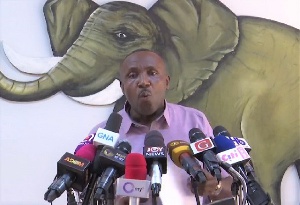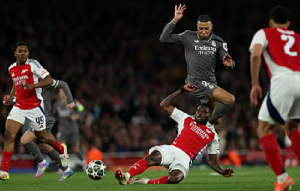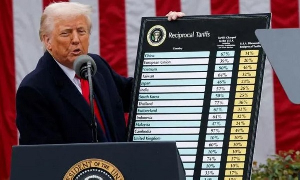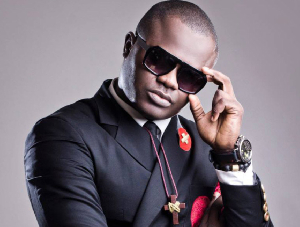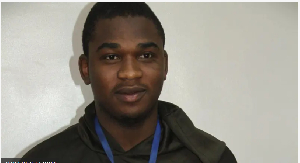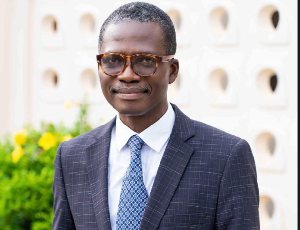NO better compliment could have been paid to a citizen by the head of state of his country than has just been paid to Mr Martin Amidu, with his nomination to Parliament as Ghana’s first-ever Special Prosecutor.
Mr Amidu should know that a lot of people – and not only in the NPP – strongly believe that President Akufo-Addo has taken a “monumental risk” (as someone put it) in gifting the post to Mr Amidu. For Mr Amidu’s political antecedents are not hidden. Many remember him as one of the most strident authoritarians of the NDC era.
But President Akufo-Addo is far-minded enough to brush that aside in the hope that Mr Amidu has jettisoned some of his more erratic ideas. Certainly, tenacity of purpose he has exhibited; his public-spiritedness in defying the late President J A Mills over the Woyome issue; and his relentless pursuit of the said Woyome in the courts to retrieve for Ghana, moneys to which Woyome was not entitled – these attributes I Amidu speak louder than words.
That Amidu did all this whilst the people who took the taxpayers’ shilling and swore to prosecute those who fraudulently siphoned money out of the Ghana treasury, sat idly by, must have impressed the president.
Certainly, as a former Attorney-General himself, who was well-schooled in the hundred of “discretionary decisions” that the denizens of the AG’s Department are privileged to make on a daily basis, the president appreciated the incredible toughness of mind that enabled Amidu to expose the possible cupidity of some of his erstwhile colleague in the AG’s Department.
Those Ghanaian citizens who detest the obnoxious practice of “create, loot and share”, will thus be looking to Amidu to perform legal “miracles”, no less. But the law is made by people (legislators) and interpreted by people (judges) at the instigation of people (lawyers).
So, at each stage of the process by which the legal game is played out, there can be misjudgements and mistakes. The bar of expectations of what Mr Amidu can do in his new job, must therefore not be set too high.
One personality flaw that has been observed in Mr Amidu as he crafted the position of “Citizen Vigilante” before the eyes of the Ghanaian public is that he is too voluble!
Such verbosity is no doubt appreciated by the fraternity of lawyers, who prefer to hear every possible argument about every aspect of a case that could be made by “learned” counsel. Unfortunately, the public wants issues to be more focused and easily understood.
Mr Amidu must remember that he always needs to carry the public with him in his new role, and that he must tailor his verbalization(s) accordingly. Clear, crisp presentations – that is what will turn him into a real “Public” Prosecutor whose word will reach far and wide, as it is relayed by the people on whose behalf he goes to court, to one another.
In other words, Mr Amidu will probably have – effectively – to reinvent himself if he is to satisfy the expectations of the public. He will also have to obtain a high success rate in the courts, which means being sensitive enough to address the doubts and prejudices of the judges before whom he appears.
Being truculent before judges is, of course, an exercise in futility, given the fact that a ruling made by a a judge can only be overturned by another judge, and that there surely must exist an unstated “trade union” ethic, whereby judges generally look askance at lawyers who show “disrespect” to “brother judges” or who act as if they “think they are too clever by half”!
It is a pity that the legislative processes through which the Public Prosecutor Act passed were so convoluted that, as I write, I do not know whether the Prosecutor’s office can take on what I consider to be one of the most shameful occurrences in our judicial system today: the incredibly lenient fines imposed on galamsey offenders by our courts.
Here are a group of people who have deliberately chosen to destroy the water-bodies whose presence in certain localities persuaded their own ancestors to site human settlements there.
Yet when these people, whose activities are veering towards making it impossible for human habitation to continue to exist in many areas in the next few decades, are taken to court, they are given a mere rap on the wrists: fines of a few thousand cedis.
Prosecuting authorities levy charges against them that are laughable – such as staying in the country without visas; or after their visas had expired (Chinese galamseyers); or disobeying the orders of the immigration authorities. Ghanaian offenders are usually charged with “mining without licence.”
Who are their financiers? Who pays to get them bailed?
The prosecution fails to make it clear to the courts that these offenders are killing rivers like the Prah, Ankobra, Oti, Offin, Birem, Densu and the Black Volta, and that killing these rivers literally means killing whole populations not yet born.
I hope the Public Prosecutor can find room in his functions to include offences related to wantonly destroying water-bodies, forest reserves and food farms, to make human habitation impossible. He must revisit all the prosecutions that have taken place in recent years which resulted in over-lenient sentences being handed down, and appeal against them.
Yes it is worth pursuing the Woyomes of this world for stealing millions of cedis. But what are the Offin, the Prah, the Ankobra, the Birem, the Densu and the Black Volta worth to the nation of Ghana? Both today and in the years to come?
Surely, the Public Prosecutor should answer that question too?
Opinions of Sunday, 14 January 2018
Columnist: Cameron Duodu



